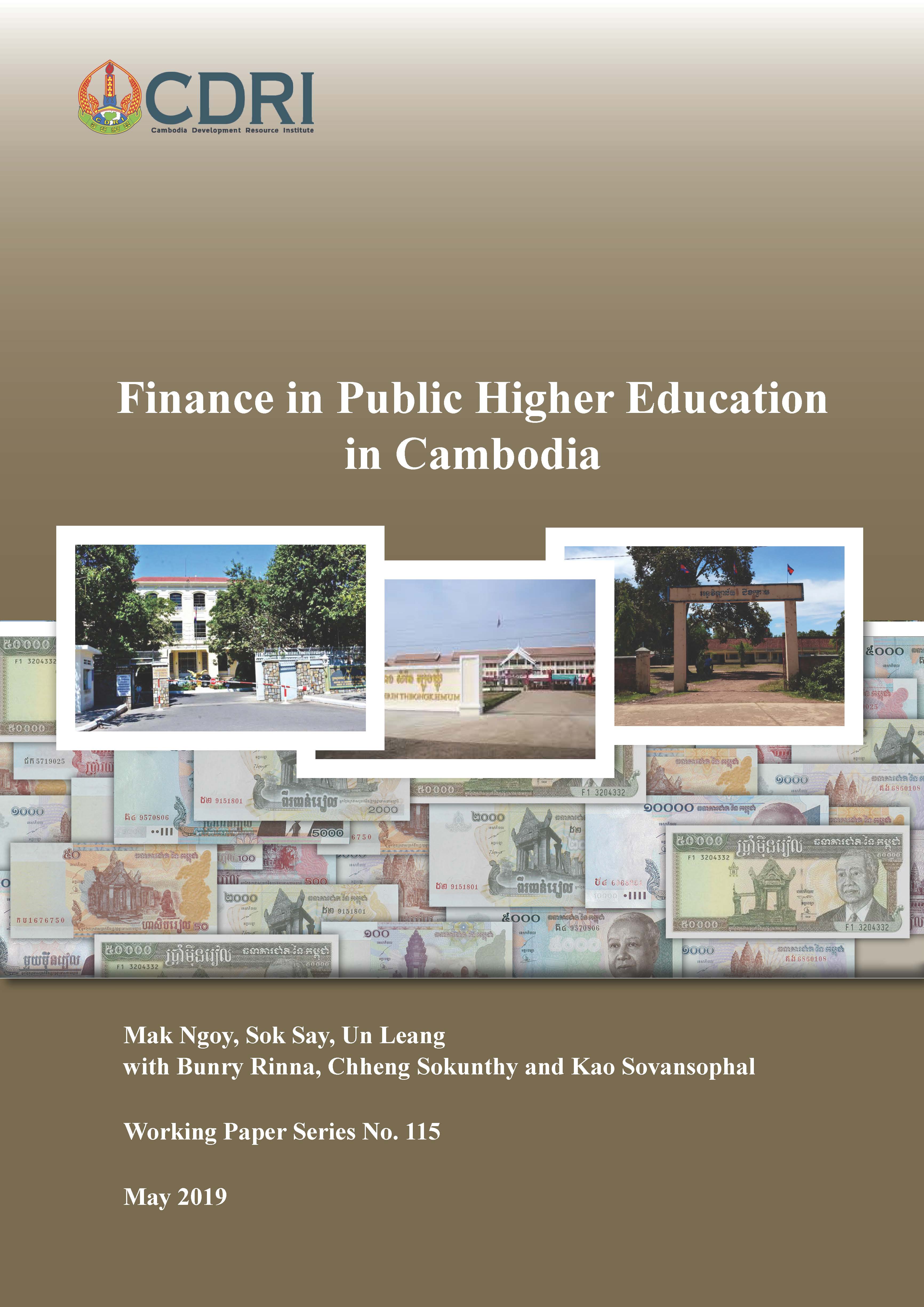
Finance in Public Higher Education in Cambodia
Cambodian higher education finance is archaic and inappropriate for creating a robust and responsive higher education system. The customary practice of line item budgeting is also obsolete. Many countries in the region have long moved towards block grants and some have recently incorporated performance-based funding. In Cambodia, bureaucratic finan...
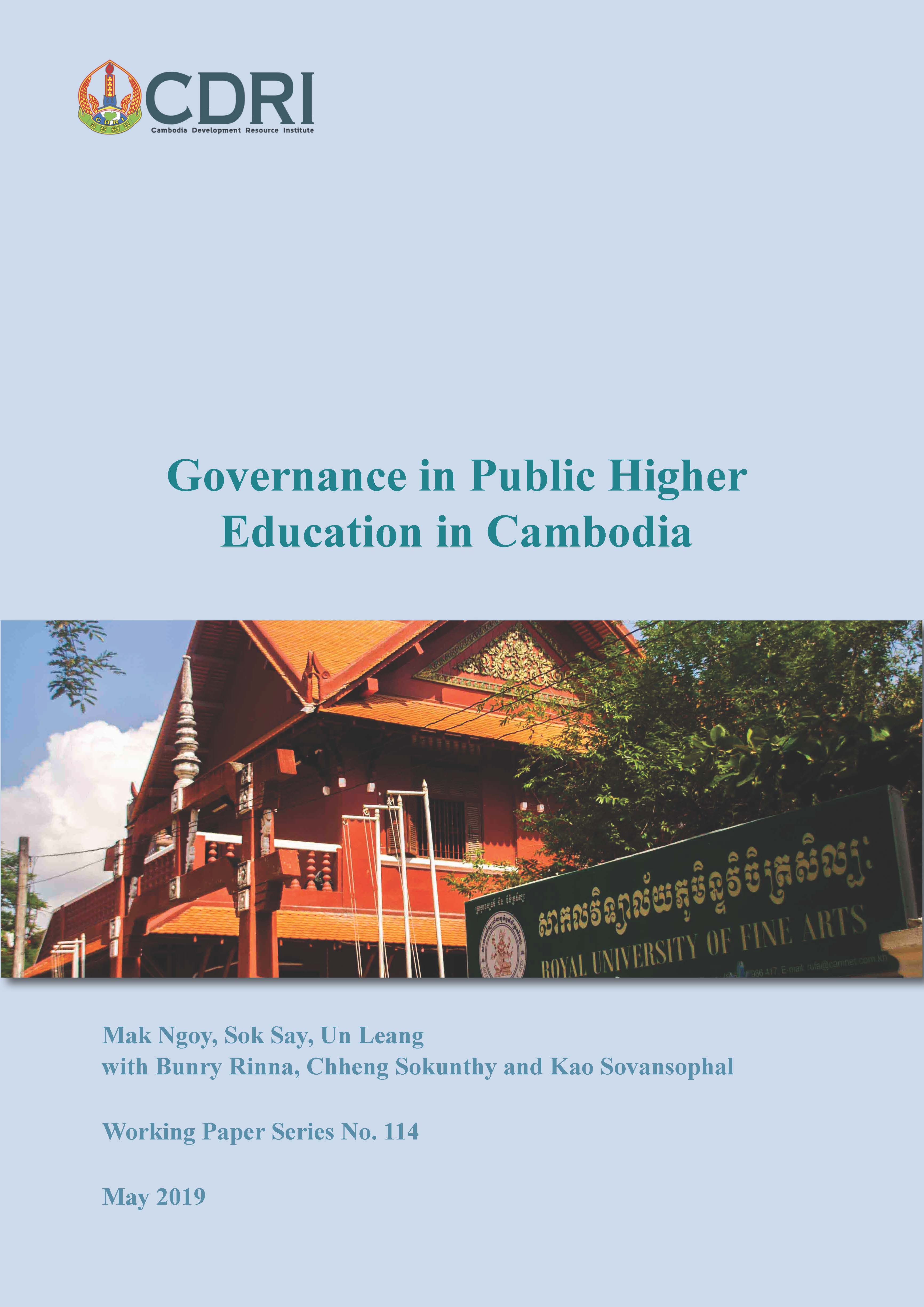
Governance in Public Higher Education in Cambodia
Compared with those of its more advanced ASEAN peers, Cambodia’s higher education system is still in its infancy. Its higher education governance, financing and financial management are neither sophisticated nor robust enough to deliver high-quality, relevant higher education to the society and economy. Higher education institutions have mushroomed...
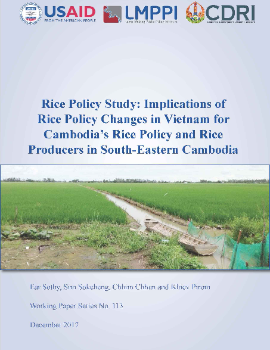
Rice Policy Study: Implications of Rice Policy Changes in Vietnam for Cambodia’s Rice Policy and Rice Producers in South-Eastern Cambodia
There are many studies about rice production in Cambodia, but none focus on the geographical location of rice production, particularly in the south-eastern provinces of Prey Veng, Takeo and Svay Rieng. Farmers in these areas produce mainly low-value rice (IR504) most of which is exported as wet paddy to Vietnam. The Vietnamese government recently d...
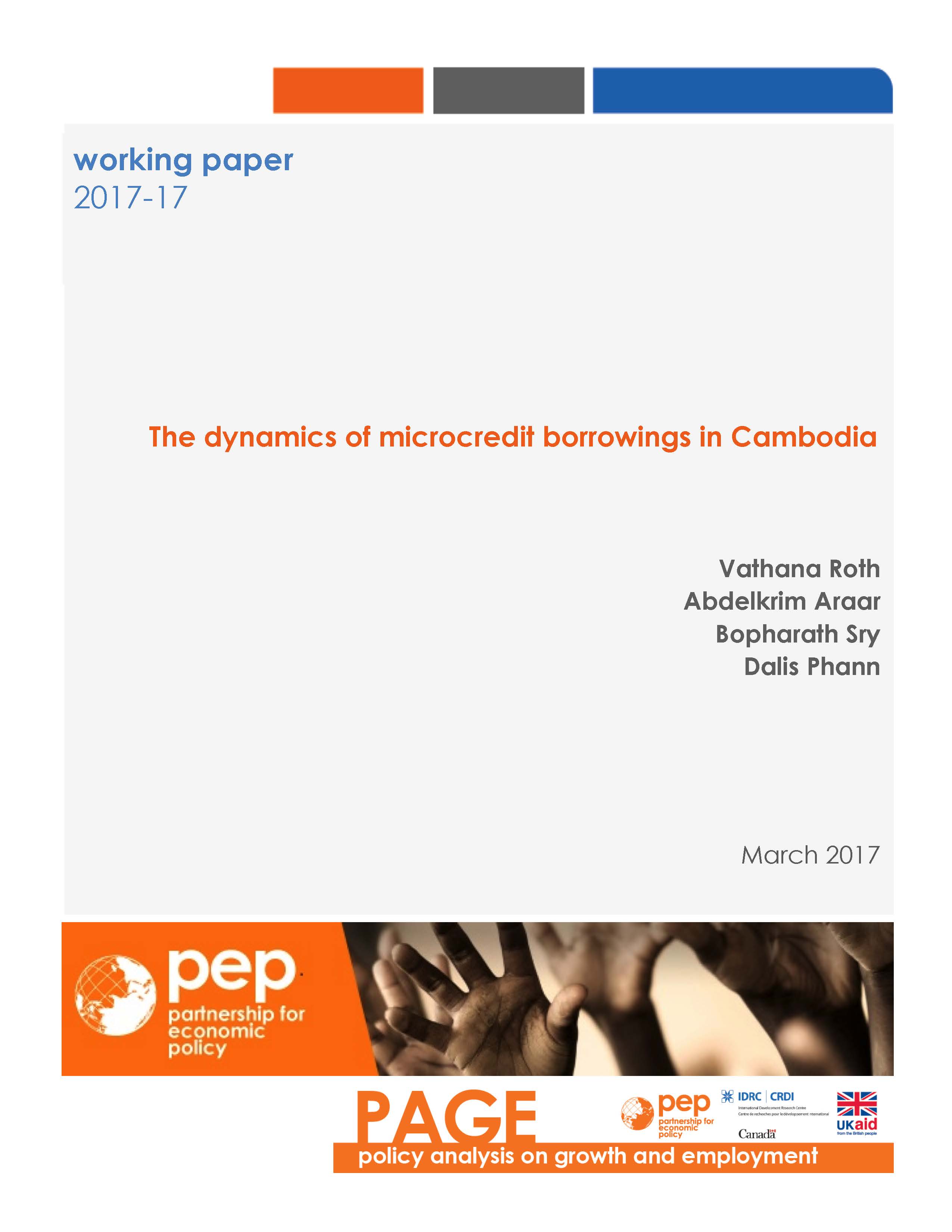
The Dynamics of Microcredit Borrowings in Cambodia
This study uses panel data collected in 11 villages in 2011-14 to investigate the impact of microcredit on paddy harvest and income, input costs for paddy production, and self-employment income. The panel data make it possible to implement difference-in-differences and triple-differences estimators. The results show that credit participants hav...
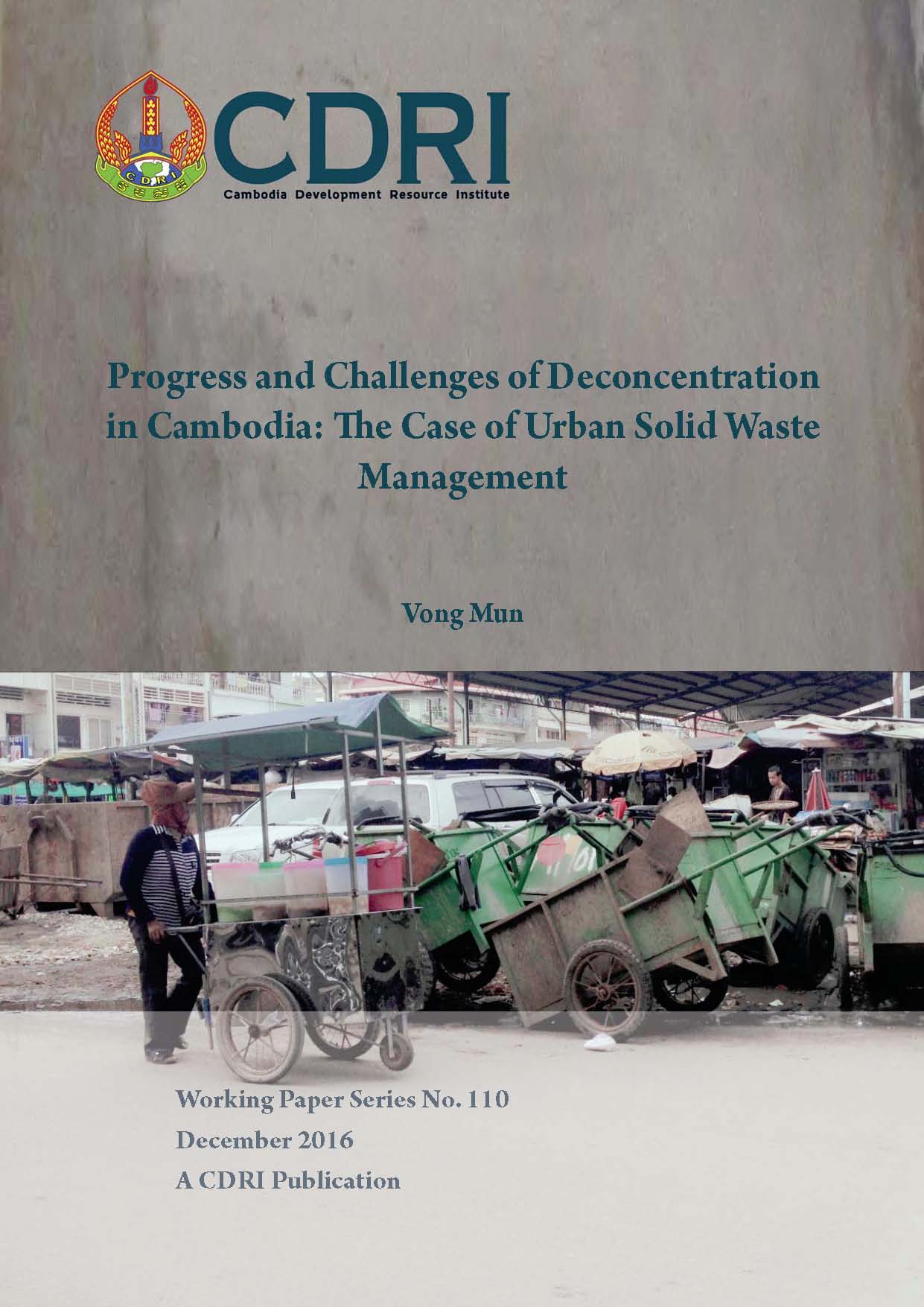
Progress and Challenges of Deconcentration in Cambodia: The Case of Urban Solid Waste Management
Rapid population expansion and urbanisation resultant of economic growth have greatly increased waste generation and associated public health issues. In light of these challenges, the Ministry of Environment jointly with the Ministry of Interior and Ministry of Economy and Finance issued in 2015 the inter-ministerial prakas on the Usage of Envi...
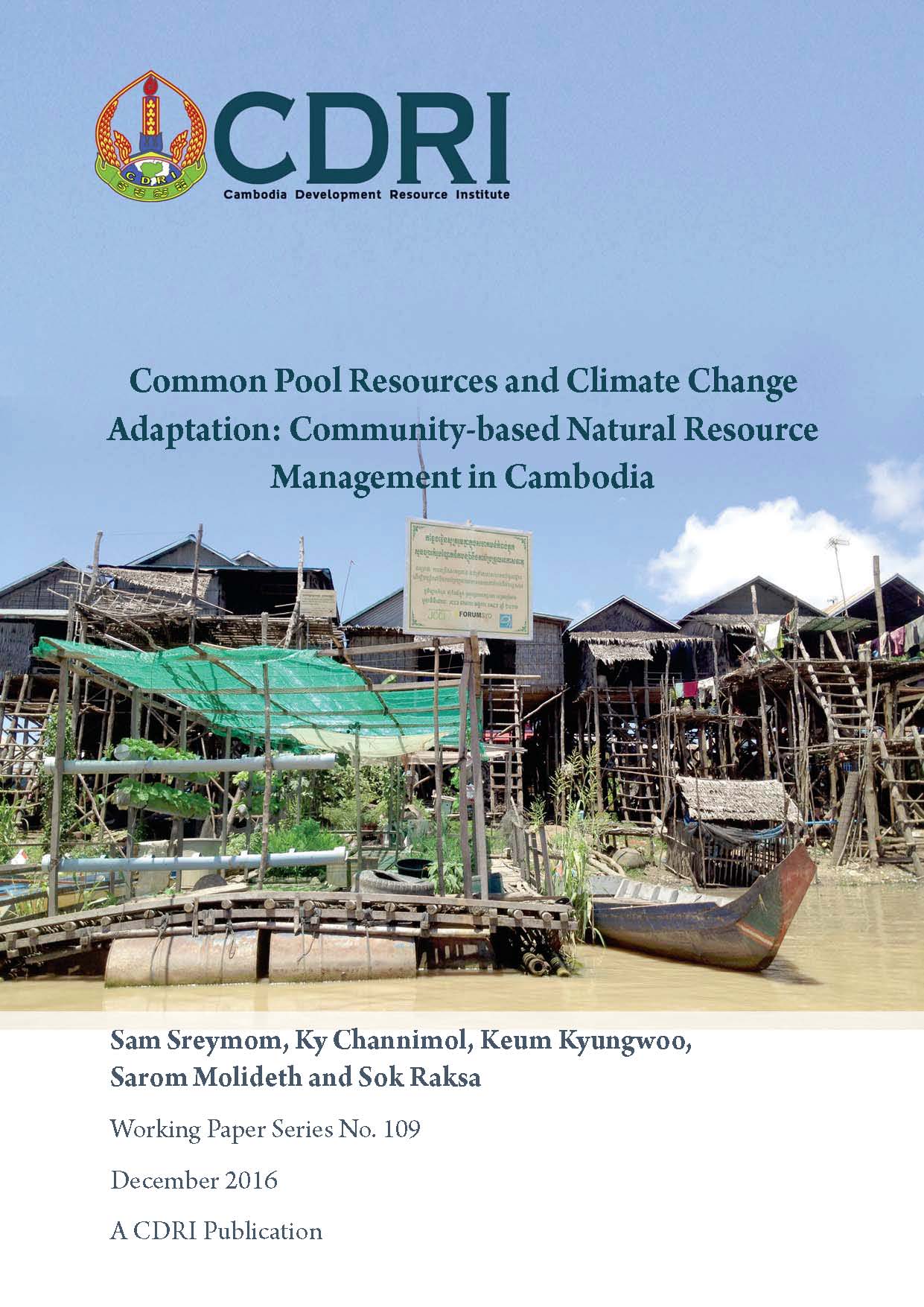
Common Pool Resources and Climate Change Adaptation: Community-based Natural Resource Management in Cambodia
Using primary and secondary data sources, this study synthesises existing knowledge on community-based natural resource management (CBNRM) approaches in Cambodia. It identifies critical challenges and suggests ways to optimise the benefits of CBNRM in the context of climate change. Selected CBNRM initiatives include farmer water user communitie...
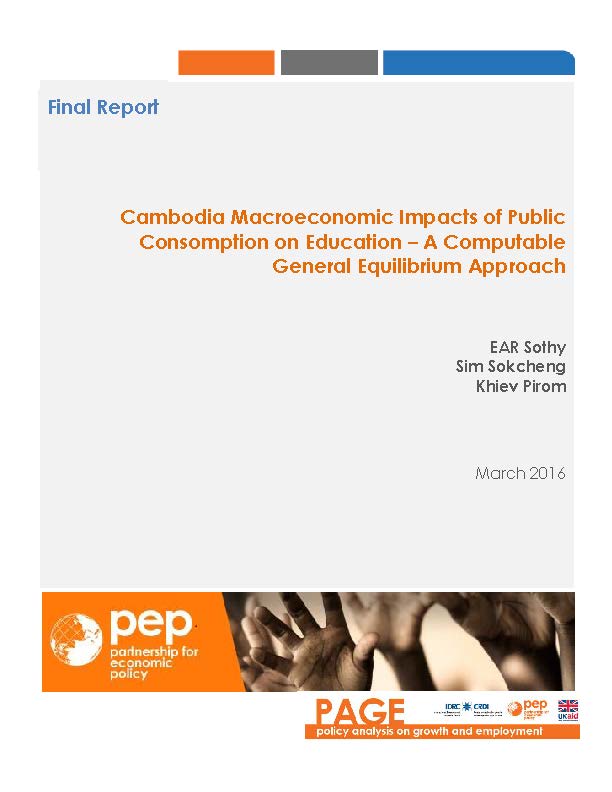
Cambodia Macroeconomic Impacts of Public Consumption on Education — A Computable General Equilibrium Approach
Lack of human capital is seen as one of the most significant constraints for Cambodia to be more competitive and to reach upper-middle-income country status. A recent discussion among researchers, policymakers, the private sector and development partners reached a broad consensus that a skills gap is emerging in Cambodia. In spite of concerted effo...
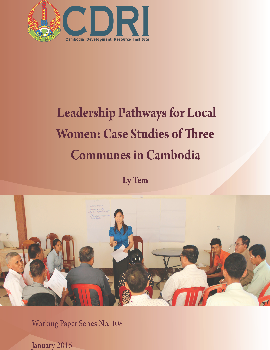
Leadership Pathways for Local Women: Case Studies of Three Communes in Cambodia
Women’s leadership is necessary for Cambodia’s sustained development. Their involvement in leadership roles in the public sphere and politics is crucial and has been shown to impact positively on poverty reduction. Governments, NGOs and international organisations have been increasingly aware that sustainable development is significantly linked to...
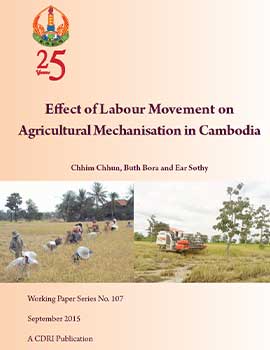
Effect of Labour Movement on Agricultural Mechanisation in Cambodia
This paper looks at the effect of labour movement on farm mechanisation in rural Cambodia. The study focuses on labour movement from on-farm towards off-farm jobs, and uses investment in agricultural machinery as a proxy for farm mechanisation. Statistics show that in recent years there has been a huge outmigration from rural areas. This has had si...
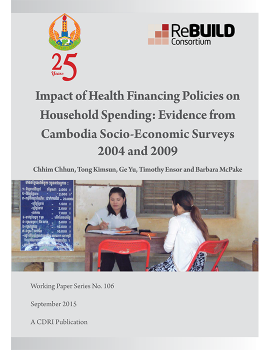
Impact of Health Financing Policies on Household Spending: Evidence from Cambodia Socio-Economic Surveys 2004 and 2009
We use the 2004 and 2009 Cambodia Socio-Economic Surveys to measure the impact of user fees, health equity funds, the government health subsidy scheme, vouchers and various combinations of these policies on household health spending. Employing a difference-indifferences estimator and a two-part model, we find that health equity funds and vouchers h...
